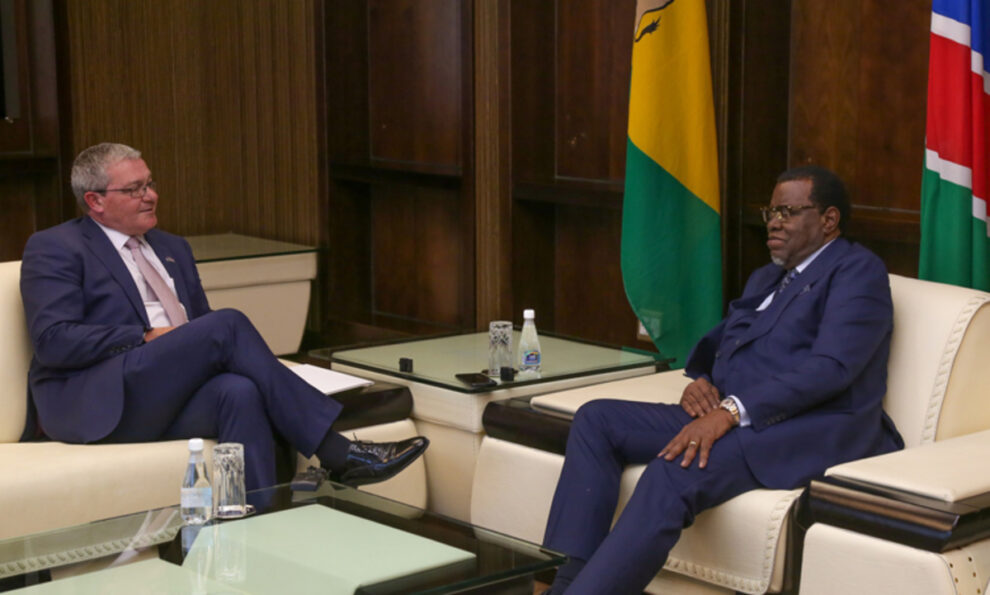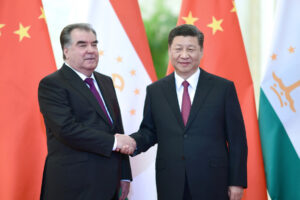British high commissioner to Namibia, Charles Moore, says no one should dictate how Namibia can use its oil and that he is following the country’s exploration developments.
Moore said this during a meeting with president Hage Geingob at State House yesterday, where he also commented on the number of Namibians seeking asylum in Britain.
Namibia’s recent oil discoveries have attracted attention from developed countries. However, there are concerns on how Namibia would balance the newly discovered oil and its pledge to attract investment in green hydrogen.
“I don’t think anybody is in a position to say you found oil, but you can’t touch it,” Moore said in reference to calls against the use of fossil fuels in favour of clean energy.
He described Namibia’s oil find as “transformational”.
“There is a lot of experience around the world on oil. So, that is something I am keen on that we are interested in as well. Even if we cannot promote it as much as we want to. But I think it looks good,” Moore said.
During the same occasion, Moore presented the United Kingdom prime minister’s invitation to Geingob to attend the Africa-UK Summit early next year.
He said the April summit aims to develop new partnerships and enhance commerce and investment. “It is an exciting time over the next 10 years with green hydrogen, with oil, and in so many other sectors as well,” Moore said.
“I think one of my key objectives over the next couple of years is to increase awareness about Namibia and the opportunities that exist here and try to generate more trade and investment,” he said.
Geingob responded to Moore’s remark that Namibia’s oil prospect “looks good”, saying Namibia intends to use the recently discovered oil to its economic benefit, after the country experienced difficult times.
“… Discovering oil these days and everybody is saying we must not get off that. I am saying it is just for a short transition period. We will use ours,” he said, in reference to opposition by environmentalists against exploitation of newly discovered fossil fuels.
Geingob added that Namibia has gone through a difficult period since he became head of state.
“Just droughts and commodity downturns, the economy was very bad. Then that severe drought came as we were trying to navigate out of that, and then, bang, an uninvited guest – Covid-19 – came two years ago,” Geingob said.
However, the president said things are looking good, though he expressed fear of another drought, a situation he said they discussed at the Cabinet meeting yesterday.
“Good rains were pouring, but it was very late and also sporadic. So, for farmers, it is not good. We just finished discussing drought relief in the Cabinet. We really need to be prepared,” the president said, adding that prime minister Saara Kuugongelwa-Amadhila will conduct a drought assessment on how to “help the people”.
ASYLUM SEEKERS
Meanwhile, Moore expressed concern over the large number of asylum seekers attempting to enter the UK.
He said his office is working with the Namibian government to try to find a solution to the matter.
“No decision has been taken yet, but we are still quite concerned by the number of asylum-seeking opportunities to go to the UK,” he said.
“There are various reasons, some people claim that they are harassed or persecuted for some reasons we don’t know. They can claim asylum on a number of grounds. But once asylum claims are assessed, we determine whether there is a case for asylum. And in the vast majority of cases, there is no ground for asylum.”
Source: Namibian
















